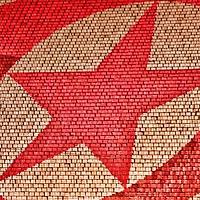Perhaps a few generations ago most Western societies looked upon North Korea with fear and trepidation, having been raised in a time that identified North Korea as a threat during the Cold War. However, now it seems that the image of fear has been replaced with one that revolves around a fascination with devastation and morbidity. The recent popularity of novels written by Western authors about North Korea, such as Blaine Harden’s Escape from Camp 14: One Man's Remarkable Odyssey from North Korea to Freedom in the West and Brandon W. Jones’s All Woman and Springtime, reveals the growth of the West’s captivation with the tales of the dark lives that the people of North Korea lead. The recent surge of new information coming from novels, which give the West a look into the enigmatic and mysterious self-enclosed world that is North Korea, may not necessarily be written with the intention of shocking and disturbing readers. But many seem to be written with the implication that they are exposing the ugly side of North Korean politics and society.
While I was still an undergraduate student, I attended a guest lecture hosted by Yale’s Thi[NK] group, There’s Hope in North Korea. Bradley Martin, the author of Under the Loving Care of the Fatherly Leader: North Korea and the Kim Dynasty, spoke to us students about the North Korea he had encountered, the defectors he had met, his book, and the works of some other authors. I remember that at the time I was quite mesmerized by the way that Mr. Martin had spoken about the people he had met while he was briefly in North Korea and the people who helped him to build the research for his book. At that time, his stories of atrocity and misfortune pulled me in because everything that he shared with us was so unheard of and alien to my own life. He told us about the defectors who continue to risk their lives to help others to defect. He informed us of other resources from which we could gather more information about the state of existence behind the walls of North Korea.
Among the resources he had mentioned was Los Angeles Times journalist Barbara Demick’s acclaimed Nothing to Envy: Ordinary Lives in North Korea, which was a nonfiction finalist for the 2010 National Book Award. In his review of Nothing to Envy, the New York Times writer Dwight Garner examines, “Ms. Demick’s book […] offers extensive evidence of the author’s deep knowledge of this country while keeping its sights firmly on individual stories and human details […] The existences she describes sound brutal: there is often not enough food; citizens work long days that can be followed by hours of ideological training at night; spying on one’s neighbors is a national pastime; a non-patriotic comment, especially an anti-Kim Jong-Il wisecrack, can have you sent to a gulag for life, if not executed.”
When I was listening to Mr. Martin’s guest lecture, I was sincerely captivated by all of the stories and insight that authors such as Mr. Martin and Ms. Demick could provide through the research and books they had written. However, as I aimed to find out more and more about the situation in North Korea, though I am still devoted to protecting the human rights of the men and women of North Korea, something about the sudden surge of new books about North Korea and the commercialization of the sorrows and plights of the North Korea stole some of the passion with which I had initially addressed human rights in North Korea. Although I never read through all of Mr. Martin or Ms. Demick’s books, somehow I felt that the information had already been fed to me – and that most books would give me a vivid picture of the type of surreal desolation that is emblematic of books for leisure and entertainment rather than education. Now it feels too commercial.
I have grasped the depth of suffering that the North Korean people have undergone, but I do not think that knowing all the intricate and painful details of that suffering has either further motivated me in my endeavors to fight against violations of human rights in North Korea or given me a clearer picture of their situation. The horror stories shock me and fill me with sadness for the helpless people, but they do not move me in the same way that meeting a defector from North Korea has.
I write this article because I think that this happens with many people who suffer – at one moment they become popular subjects who need to be rescued from the tyranny that oppresses them and in the next moment the stories of their suffering become articles for consumption. I do not blame the authors or the books. Their words, experiences, and information shed light on some of the unknown realities found in North Korea. However, since they still only represent a fragment of the whole picture – a fragment that cannot be experienced directly – it is easy to disregard the plight of the North Korean people. Though it may not be feasible, I think that an encounter with a defector would strengthen one’s concern and compassion for North Korea.
서구 작가 그리고 북한
몇 십 년 전까지만 해도 서구 사회는 북한을 냉전 당시의 위협으로 여겨 두려움으로 바라봤었다. 하지만 지금은 두려움보다는 신기함과 절망감으로 바라본다. 블레인 하든의 14호 수용소로부터의 탈출과 브랜든 존스의 모든 여성 그리고 봄과 같은 서구 작가들이 쓴 북한에 대한 소설들이 인기를 얻으면서 어두운 북한에서의 삶에 대한 서양사회의 관심은 높아지고 있는 것을 볼 수 있다. 수수께끼 같은 고립된 북한을 서양사회가 조금 더 알 수 있게 하는 이 소설들은 독자들을 충격에 빠뜨리는 것이 목적이 아니라 북한의 어두운 정치와 사회를 있는 그대로 나타내는데 목적을 두는 것 같다.
내가 대학생일 때 예일대의 한 동아리에서 주최한 강의를 들은 적이 있다. 어버이 수령의 따스한 보살핌 아래라는 책을 쓴 브래들리 마틴은 강의를 하며 그가 겪은 북한, 그가 만난 많은 탈북자들, 그의 책, 그리고 다른 작가들의 책에 대해 이야기 했다. 마틴씨가 북한을 잠깐 방문하며 만난 사람들과 그가 책을 쓸 수 있게 도움을 준 사람들에 대한 이야기를 들으며 나는 완전히 매료되었다. 그 당시에 그가 전한 끔찍하고 안타까운 이야기들이 학생인 우리와 너무 멀게 느껴졌었다. 그는 다른 이들도 탈북할 수 있도록 목숨을 내놓고 힘쓰는 탈북자들에 대한 이야기도 했었다. 그리고 북한의 현황에 대한 정보를 쉽게 접할 수 있는 다양한 출처도 제공했다.
그가 공유했던 정보 중 미국의 신문사 Los Angeles Times의 기자 Barbara Demick의 책 부러울 것 없어라가 있다. 이 책은 2010년에 내셔널 북 어워드 수상작이기도 하다. 신문사 New York Times의 기자 Dwight Garner는 부러울 것 없어라의 서평란에 책을 이렇게 설명했다: “개개인의 이야기와 인간적인 디테일만으로도 작가는 북한에 대한 본인의 깊은 지식을 보여준다. 그녀가 소개하는 인물들의 삶은 참으로 잔혹하다. 식량이 부족하고 시민들은 길디긴 하루의 근무를 마치고도 밤에는 사상교육을 받아야 한다. 서로 이웃을 감시하는 것은 너무나도 당연한 일상이 되어버렸고 단 한번의 비애국적인 발언으로 평생을 수용소에서 보낼 수 있다.”
강의를 들으며 책으로 많은 이야기와 지식 그리고 조사결과를 세상과 나눌 수 있는 작가들을 생각하며 나는 그들을 존경하기 시작했다. 하지만 북한에 대한 더욱 많은 책이 나오면서 북한 인권이 어느새 상업화되어 가고 있다는 것을 느낀다. 나는 이 작가들의 책을 직접 읽어 본 적은 없지만 어떤 면에서는 거기에 적힌 내용이 어떤 것인지 미리 알 수 있을 것 같다. 그리고 오락을 위해 쓰인 대부분의 책과 같이 이 책들도 독자의 관심을 사려고 북한의 비현실적인 고적감에만 집중한 듯 하다. 너무도 상업적이다.
북한 사회가 겪고 있는 고통의 깊이가 어느 정도인지 지금 조금이라도 알 수 있을 것 같다. 하지만 그 고통의 구체적인 내용을 아는 것이 내가 북한인권을 위해 일하고자 하는 마음을 더욱 강화시키거나 그들의 현황을 더욱 선명하게 하는 것 같지는 않다. 물론 이러한 책을 읽으면 마음이 아프지만 그 고통을 직접 느낀 탈북자들을 만날 때 나의 마음에서 느껴지는 아픔은 다르다. 그 아픔은 더욱 크다.
힘든 삶을 산 이들은 한 순간에 그들을 탄압하는 것으로부터 구출해야 하는 대상이 되고 또 한 순간에 그들의 이야기가 대중에게 흥미를 주는 대상이 되기도 한다. 이것이 내가 이 기사를 쓰는 이유이다. 이러한 책들이나 그 작가들을 원망하는 것은 아니다. 그들의 글과, 경험, 그리고 지식은 우리가 알 수 없는 북한의 대한 정보를 제공해 주기도 한다. 하지만 이러한 정보도 그저 큰 그림의 일부분일 뿐이다. 우리가 직접 경험할 수 없는 부분이기 때문에 북한 시민들의 역경을 쉽게 생각할 수 있는 위험이 있다. 모두가 실현 가능한 것은 아니겠지만, 이 모든 것을 직접 경험한 탈북자를 만나는 것만이 북한에 대한 관심과 동정심을 키우는 방법이라고 나는 생각한다.
'대학생기자단 > 해외상생기자단' 카테고리의 다른 글
| Now On My Way to Meet You (이제 만나러 갑니다) (0) | 2012.09.15 |
|---|---|
| Why Web Design Matters for North Korea (북한의 새로운 웹사이트) (0) | 2012.09.14 |
| Emulating the Idols of the “Korean Wave” in North Korea (한류열풍의 스타들 따라잡기) (0) | 2012.09.12 |
| On My Way to See You (이제 만나러 갑니다) (1) | 2012.09.11 |
| Basketball in North Korea: Brunch with Luke Elie (북한과 농구: 루크와의 점심식사) (0) | 2012.08.05 |





